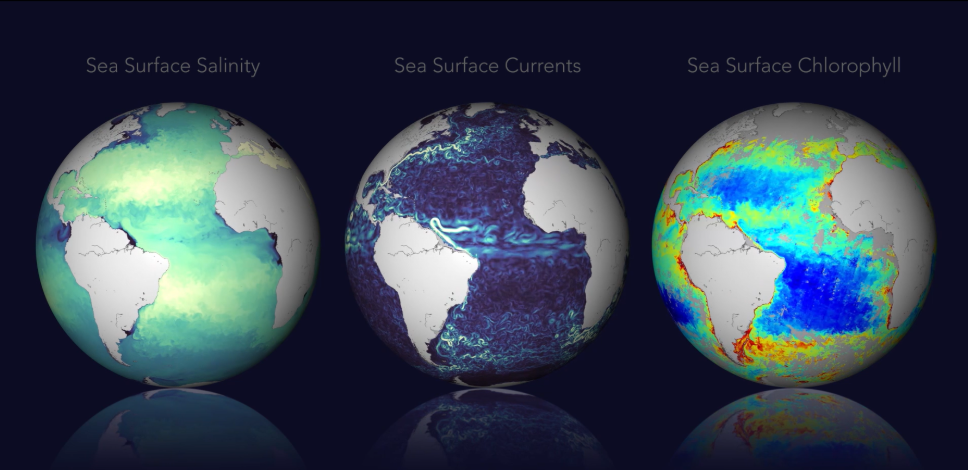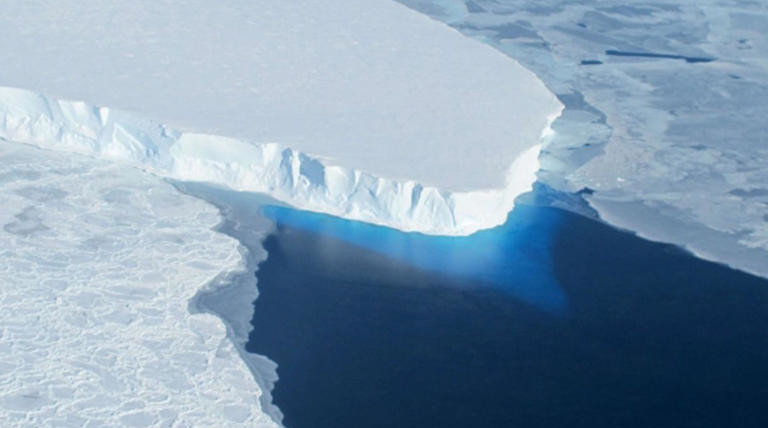It’s the watchtower of the oceans. Mercator Ocean has developed a digital replica of the oceans to better understand them and address the impact of climate change. An initiative from the European Union, carried out from Toulouse (Haute-Garonne) and accessible to all. Pierre Bahurel, the CEO of the Toulouse-based company, explains.
The oceans cover more than 70% of our planet, and they too are impacted by climate change. It is crucial to observe and preserve them. In February 2022, the « One Ocean Summit » in Brest led to significant announcements for their protection. The company Mercator Ocean, based in Toulouse, became the spearhead of this European initiative. However, it took three years before the project came to fruition.
The European Union’s Commitment to the Oceans
European Commission President Ursula von der Leyen wanted to focus on digital tools to deepen our understanding of the oceans. This initiative aimed to build on the Copernicus program, a European Earth observation program, to provide information services based on satellite data and in-situ observations.
A partnership between France and the EU was then formed. Although Toulouse has no direct access to the sea, it boasts a strong scientific hub linked to space and satellites, with Mercator Ocean closely monitoring the oceans from the city of Toulouse.
At the Brest summit, French President Emmanuel Macron expressed his intent to rely on Mercator Ocean to turn it into a European intergovernmental organization.
Now in 2025, after lengthy discussions, the first steps toward realization are on the horizon. « It’s a long process, » acknowledges Pierre Bahurel, CEO of Mercator Ocean. « The first phases are tough, and our work is invisible. We created this infrastructure and interconnected programs. A group of six states (Spain, Italy, Norway, Portugal, the United Kingdom, and France) worked on drafting this treaty. We were asked to provide a first draft by 2024. The discussions were then opened to 31 countries. The third United Nations Ocean Conference (UNOC), co-chaired by France and Costa Rica, will be held in Nice from June 9-13. The treaty will be presented and put up for signature. »
/regions/2025/04/29/xb-mercator-2025-02-portraits-050-6810e9ca3ae79417744439.jpg)
It is up to states to decide whether to sign and ratify it. While 2025 and the Nice conference will mark a crucial turning point for these projects, the 125 employees of Mercator Ocean have been working on digitizing the oceans. The European forecasting center based in Toulouse has created a digital twin of the global oceans to better understand them and monitor the impact of climate change.
« Aggregating All Information and Sharing It Quickly »
At a time when the White House is dismissing science, the work being done in Toulouse to create this European digital twin of the oceans (DTO) seems like a rebuke. « It is a European commitment that I fully support, » says Pierre Bahurel. « We are clear about the scope of the service. We don’t just stop at the data; we provide tools to interact with them. We create software that allows users to ask questions interactively. This tool offers the best of science, and it’s free. »
/regions/2025/04/29/2025-01-06-jumeau-numerique-ocean-pim-brest-029-6810e8026bc79958978216.jpg)
For instance, users can concretely see the impact of rising sea levels, ocean salinity, or track the drift of plastic objects abandoned in certain areas. However, it is not a navigation aid or a tool for aquaculture. « We are generalists and scientific. We leave plenty of room for those working in applications, those at the end of the chain. For it to work, it must be as easy as possible. Our work is free. »
These data, however, are expensive to generate. Other digital twins of the oceans exist in China or Australia, but this coordinated European scientific effort has no equivalent. Oceanography is a recent discipline, but it is gaining depth in Toulouse.

Mercator Ocean in Toulouse
Founded in 1995, Mercator Ocean is a non-profit civil company with 125 employees based in Toulouse. It also works with 300 service providers across Europe, has 100,000 (free) subscribers, and millions of users worldwide.
Mercator Ocean operates with a budget of €50 million, primarily funded by the European Union. « We are used to working with limited resources, but now we have commitments for sustainable funding. We are breaking glass ceilings. This has changed the discipline. »
This change fills Pierre Bahurel with optimism. By 2030, Mercator Ocean International will grow further and perhaps generate a greater awareness of ocean protection and climate change. « Digital tools allow access to knowledge but also help people feel and take ownership of the issues, creating a more evident consciousness. The moment is ripe, and I dare say we can indeed change things a little. »
Source: france3



